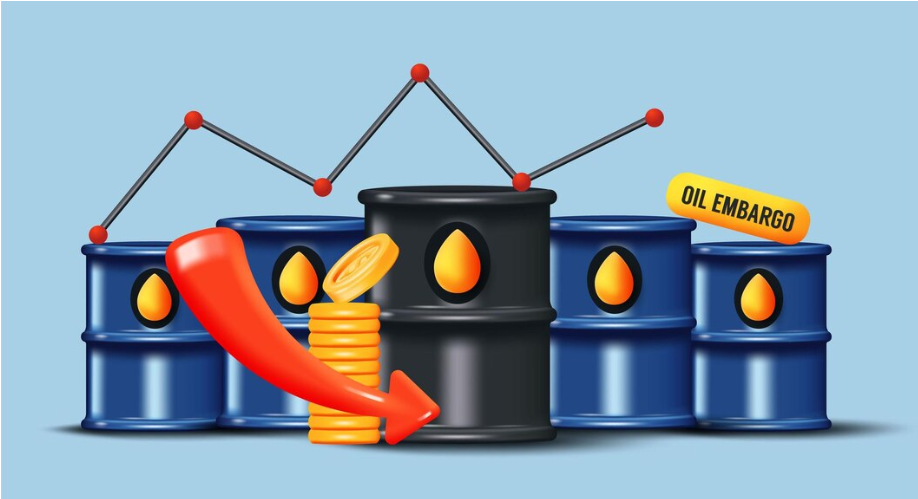In the world of trading, some assets always seem to steal the spotlight when markets get rocky, and gold and oil are at the top of that list. When the global economy goes through wild swings, traders and investors look at these two assets like their guiding lights. Gold, often thought of as a “safe haven,” and oil, the lifeblood of industries, play pivotal roles in global market strategies. So, let’s dive into what’s been happening lately and why you might want to keep a close eye on these resources.
Why Gold and Oil?
Gold and oil hold a unique place in the financial markets. Gold is often considered a “store of value,” meaning it’s a stable way to hold wealth, especially during crises. Investors flock to it when currencies and stocks start to look shaky. On the other hand, oil has a huge impact on industries everywhere, so changes in oil prices can signal or even trigger economic changes worldwide. Whether you’re trading these assets or just want to understand their impact, it’s crucial to see how they interact with each other and the broader market.
Recent Trends in Gold and Oil Prices
Gold – A Safe Bet?
Gold’s appeal as a safe asset tends to rise when market volatility kicks in. With inflation rising and global tensions occasionally flaring up, gold prices have been on a bit of a rollercoaster. But why do people keep turning to gold? Simple—gold isn’t just a shiny metal; it represents stability. When currencies lose value or stocks tumble, gold is a go-to for preserving wealth.
Key Influencers on Gold Prices:
- Inflation: As inflation rises, the value of money decreases. People buy gold as it tends to hold its value.
- Interest Rates: Central banks raise interest rates to combat inflation, but higher rates can make holding gold less attractive since it doesn’t pay interest.
- Geopolitical Tensions: Uncertain times, like global conflicts or trade wars, make gold shine even brighter as a safe haven.
Oil – The Market’s Barometer
Oil prices tell a story about global demand and economic health. When economies are booming, oil demand surges, pushing prices up. But when economies slow, so does demand for oil, and prices drop. The recent fluctuations in oil prices have been influenced by supply-chain issues, the shift towards renewable energy, and fluctuating demand due to global economic uncertainty.
Factors Affecting Oil Prices:
- Supply and Demand: When there’s an oversupply, prices dip; when supply is tight, prices spike.
- OPEC Decisions: The Organization of the Petroleum Exporting Countries (OPEC) can cut or increase oil production, directly impacting global oil prices.
- Geopolitical Events: Conflicts in oil-rich regions can lead to supply disruptions and drive prices higher.
How Global Events Shake Up Gold and Oil Markets
It’s no surprise that international events have a massive impact on gold and oil. From pandemics to political shifts, here’s how the big global events influence these assets.
Economic Policies and Stimulus Measures
When governments and central banks step in to support the economy (like lowering interest rates or providing stimulus packages), it often boosts consumer spending. But, as more money circulates, inflation rises, which can send gold prices up. Oil may also rise as increased economic activity pushes demand.
The Green Energy Shift
The world’s gradual shift towards renewable energy sources might seem like bad news for oil, but it’s complicated. While renewables are on the rise, oil is still crucial for many industries. The long-term demand for oil might decrease, but in the short term, oil prices are likely to stay volatile as industries transition.
Geopolitical Tensions
Every time there’s unrest in a key oil-producing region, oil prices get a boost. Similarly, political or economic crises make gold a sought-after asset. This year has seen a lot of such movements, and gold and oil have mirrored that uncertainty.
FXpricing’s Role in Keeping Traders Informed
When you’re trading in volatile markets, information is key. FXpricing provides the tools traders need, from real-time data on gold and oil prices to historical data for in-depth analysis. For traders, investors, and researchers, FXpricing offers:
- Live market rates for forex, cryptocurrencies, stocks, commodities (including gold and oil).
- Customizable dashboards for tracking assets in real-time.
- Economic calendars to track global events that may impact the markets.
Tips for Traders: How to Trade Gold and Oil Amid Market Uncertainty
If you’re looking to trade gold and oil during turbulent times, here are a few strategies that can help:
- Stay Informed: Follow global news and economic reports. Markets move fast, and so should you.
- Use Real-Time Data: Get real-time updates on gold and oil prices to make quick decisions.
- Look at Historical Data: Gold and oil prices often follow certain patterns. Analyzing past trends can give you insights into future movements.
- Consider Safe-Haven Strategies: For gold, consider it during times of inflation or economic downturns. For oil, think about how geopolitical events might disrupt supply.
Personal Insights: My Take on Gold and Oil Trading
If I could give just one piece of advice, it’d be this: don’t overlook the bigger picture. Trading isn’t just about numbers—it’s about understanding what those numbers represent. Gold and oil prices reflect much more than just supply and demand; they tell stories about the world’s economic health, political stability, and even our collective fear or confidence in the future. Keep your eye on the trends, but always remember why they’re happening.
FAQs
Q: Why do traders look at gold and oil during uncertain times?
A: Gold is often viewed as a “safe-haven asset,” which means it holds value during crises. Oil, on the other hand, is essential for industries, so its price reflects economic health and demand.
Q: How does inflation impact gold prices?
A: Inflation decreases the purchasing power of money, so people often turn to gold to preserve value, pushing up demand and prices.
Q: What’s the role of OPEC in oil prices?
A: OPEC controls a significant portion of the world’s oil supply. Its decisions on production levels can directly impact global oil prices.
Q: How can FXpricing help me track gold and oil markets?
A: FXpricing offers live data, historical charts, and customizable tools to help you analyze market trends, stay updated, and make informed trading decisions.Q: Is it possible to trade both gold and oil on FXpricing’s platform?
A: Yes, FXpricing provides data and analysis on multiple assets, including gold and oil, making it easier for traders to diversify their strategies.



